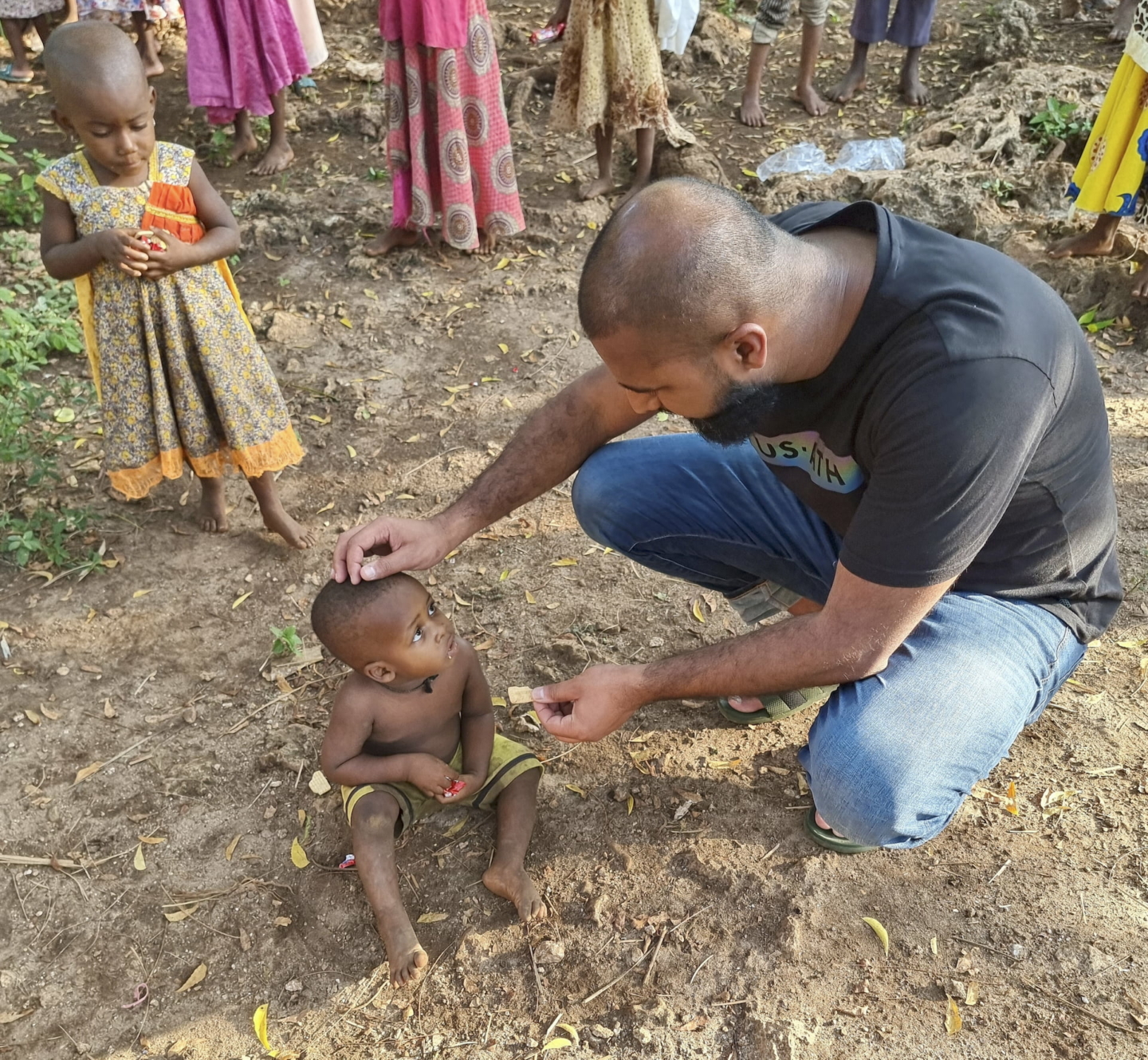Whether rooted in religious beliefs or driven by a broader sense of altruism, the act of giving to charity is seen as a virtuous deed, embraced by both Muslims and non-Muslims alike. But why?
In a world dominated by capitalist principles, where the main motivation is to accumulate wealth, what motivates certain individuals to willingly part with their hard-earned income? Do people give simply because they are financially comfortable? What are the motivations for giving to charity? This blog explores five compelling reasons behind people’s inclination to contribute to charitable causes.
To fulfill a command from Allah:
يَـٰٓأَيُّهَا ٱلَّذِينَ ءَامَنُوٓا۟ أَنفِقُوا۟ مِن طَيِّبَـٰتِ مَا كَسَبْتُمْ وَمِمَّآ أَخْرَجْنَا لَكُم مِّنَ ٱلْأَرْضِ ۖ وَلَا تَيَمَّمُوا۟ ٱلْخَبِيثَ مِنْهُ تُنفِقُونَ وَلَسْتُم بِـَٔاخِذِيهِ إِلَّآ أَن تُغْمِضُوا۟ فِيهِ ۚ وَٱعْلَمُوٓا۟ أَنَّ ٱللَّهَ غَنِىٌّ حَمِيدٌ
O believers! Donate from the best of what you have earned and of what We have produced for you from the earth. Do not pick out worthless things for donation, which you yourselves would only accept with closed eyes. And know that Allah is Self-Sufficient, Praiseworthy.
(Quran 2:274)
As Muslims, our life’s purpose is to worship Allah, a purpose that requires both obeying His commands and abstaining from His prohibitions. Among the commands bestowed upon us by Allah and His Messenger is the obligation to give charity, which comes in two forms: the obligatory charity known as zakat and the voluntary acts of giving, termed as sadaqah. For a more in-depth exploration of voluntary charity, refer to our blog post on sadaqah [insert link to sadaqah post].
Allah, in the Quran, tells us who the recipients of our donations should be. In verse 215 of surah Al Baqarah, Allah says, in translation: Say, “Whatever donations you give are for parents, relatives, orphans, the poor, and ‘needy’ travelers. Whatever good you do is certainly well known to Allah.”
To create a positive social impact:
People are driven to make an impact on the world and charity is an easy outlet for that desire. Each donation/act of charity has the potential to transform lives, inspire hope, and create a sense of communal well-being. Whether it’s supporting education initiatives, alleviating poverty, or addressing pressing social issues, it ends up with the collective betterment of humanity. By donating, we not only fulfill a command from Allah, but also become a means by which Allah grants the dua of those in need. We become the drivers of positive change in the world.
This desire to create an impact on the world is not only found with Muslims but non Muslims as well. In fact, all humans feel this desire. Some might feel that donating is their moral duty, where a person feels that it is the right thing to do. Some donate because when they do, it feels good. Some donate because their peers are doing so and it encourages them to follow suit because of the social pressure. And some donate because the donor has been through a similar experience to the cause and can empathize.
To empathise with those less fortunate than us:
وَحَدَّثَنِي زُهَيْرُ بْنُ حَرْبٍ، حَدَّثَنَا جَرِيرٌ، ح وَحَدَّثَنَا أَبُو كُرَيْبٍ، حَدَّثَنَا أَبُو مُعَاوِيَةَ، ح وَحَدَّثَنَا أَبُو بَكْرِ بْنُ أَبِي شَيْبَةَ، – وَاللَّفْظُ لَهُ – حَدَّثَنَا أَبُو مُعَاوِيَةَ، وَوَكِيعٌ، عَنِ الأَعْمَشِ، عَنْ أَبِي صَالِحٍ، عَنْ أَبِي هُرَيْرَةَ، قَالَ قَالَ رَسُولُ اللَّهِ صلى الله عليه وسلم ” انْظُرُوا إِلَى مَنْ أَسْفَلَ مِنْكُمْ وَلاَ تَنْظُرُوا إِلَى مَنْ هُوَ فَوْقَكُمْ فَهُوَ أَجْدَرُ أَنْ لاَ تَزْدَرُوا نِعْمَةَ اللَّهِ ” . قَالَ أَبُو مُعَاوِيَةَ ” عَلَيْكُمْ ” .
Abu Huraira reported Allah’s Messenger (ﷺ) as saying: Look at those who stand at a lower level than you but don’t look at those who stand at a higher level than you, for that is better-suited that you do not disparage Allah’s favors.
In the chain narrated by Abu Mu’awiya’s he said: Upon you.
Sahih Muslim 2963c
When we engage in acts of donation, we are prompted to look at those who may stand at a lower level than us financially. The act of giving, then, becomes a tangible expression of gratitude for the favors given to us by Allah. In this way, our donations not only uplift those in need but also serve as a humbling reminder to appreciate our own blessings and to stop us from comparing ourselves to those in higher positions than us.
To transfer to your “bank account” in the akhirah:
While most of us have a tangible bank account in this worldly life, it is essential to recognize that each one of us also possesses a “bank account” in the hereafter. The deposits into this account are the charitable contributions we make during our time in this world.
Allah says in verse 272 of surah Al Baqarah, in translation: Whatever you donate will be paid back to you in full, and you will not be wronged.
Allah has promised us that whatever we donate will be paid back to us. This divine promise resonates harmoniously with the teachings of the Messenger of Allah (ﷺ):
حَدَّثَنَا قُتَيْبَةُ، حَدَّثَنَا عَبْدُ الْعَزِيزِ بْنُ مُحَمَّدٍ، عَنِ الْعَلاَءِ بْنِ عَبْدِ الرَّحْمَنِ، عَنْ أَبِيهِ، عَنْ أَبِي هُرَيْرَةَ، أَنَّ رَسُولَ اللَّهِ صلى الله عليه وسلم قَالَ “ مَا نَقَصَتْ صَدَقَةٌ مِنْ مَالٍ وَمَا زَادَ اللَّهُ رَجُلاً بِعَفْوٍ إِلاَّ عِزًّا وَمَا تَوَاضَعَ أَحَدٌ لِلَّهِ إِلاَّ رَفَعَهُ اللَّهُ ” . قَالَ أَبُو عِيسَى وَفِي الْبَابِ عَنْ عَبْدِ الرَّحْمَنِ بْنِ عَوْفٍ وَابْنِ عَبَّاسٍ وَأَبِي كَبْشَةَ الأَنْمَارِيِّ وَاسْمُهُ عُمَرُ بْنُ سَعْدٍ . وَهَذَا حَدِيثٌ حَسَنٌ صَحِيحٌ .
Abu Hurairah narrated that the Messenger of Allah said: “Charity does not diminish wealth, Allah does not increase a man in anything for his pardoning (others) but in honor, and none humbles himself for Allah but Allah raises him.”
Jami` at-Tirmidhi 2029
Our acts of charity are invaluable investments, not only in the material world but also in the everlasting realm of the hereafter.
The motivations behind charitable giving are as diverse as the acts themselves, collectively shaping a narrative of faith, compassion, positive impact, and empathy. As individuals contribute to the well-being of others, they not only fulfill a divine command from Allah but also fortify their “bank accounts” in the akhirah, contributing to the importance of human connection and creating a legacy of kindness that resonates across time and eternity.




